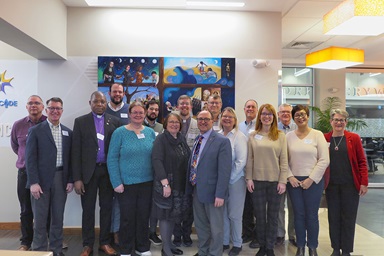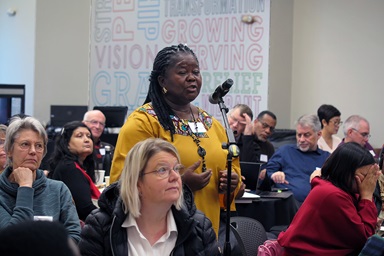Delegates to the United Methodist Church’s top legislative body continued the church prohibition of self-avowed practicing homosexuals being involved in ordained ministry.
Within the qualifications for ordaining ministers in the United Methodist Church is a statement that says, “Since the practice of homosexuality is incompatible with Christian teaching, self-avowed practicing homosexuals are not to be accepted as ministers or appointed” in the church.
The delegates to the 2004 General Conference removed the word “since” and made a declaratory statement on May 4 that says, “The practice of homosexuality is incompatible with Christian teaching.” After the word “teaching,” delegates added the word “therefore” and made a second sentence. The adopted language now reads: “The practice of homosexuality is incompatible with Christian teaching. Therefore, self-avowed practicing homosexuals are not to be accepted as candidates, ordained as ministers or appointed to serve in the United Methodist Church.”
Following much debate, the delegates defeated a minority report that would have given each annual conference or central conference — regional units of the church — the responsibility of determining how it will approach homosexuality as it relates to a person’s fitness for ministry.
Speaking against the minority report was the Rev. Wiley Stephens, a delegate from the North Georgia Annual Conference. He said the report “strikes at our unity as a denomination” and urged the delegates to stay united as they move forward.
Another delegate, the Rev. Tim McClendon of South Carolina, expressed concern about the report because the polity of the denomination is connectional.
The delegates, in a vote of 674-262, reaffirmed the language in the United Methodist Book of Discipline regarding the character and commitment of those seeking ordination and affirmed the church’s standards.
*Green is a news writer for United Methodist News Service.
News media contact: (412) 325-6080 during General Conference, April 27-May 7. After May 10: (615) 742-5470.
Like what you're reading? Support the ministry of UM News! Your support ensures the latest denominational news, dynamic stories and informative articles will continue to connect our global community. Make a tax-deductible donation at ResourceUMC.org/GiveUMCom.



